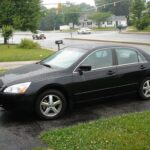Is it Safe to Drive with Low Brake Fluid? (Solved)
Have you ever been in a situation where you step on your brakes, and they’re a little too soft or free?
Sometimes you may have stepped on the brakes, but it takes a bit longer for the car to slow down. This is a serious situation as something may be wrong with your braking system.
Here we’ll discuss low brake fluid and how dangerous it can be. Is it safe to drive with low brake fluid and how best to solve this issue?
Is it Safe to Drive with Low Brake Fluid?
No, it is not safe to drive with low brake fluid. Brake fluid is an essential part of your brake system. Having low fluid in your brake system means the brakes may not perform optimally.
Brakes on your vehicle help slow your car down safely. In most emergencies, the brakes will be the first thing you rely on to save you. Making sure the fluid is topped up will ensure they work properly.
When your brake fluid is low, you will get a brake warning light in your dashboard. Attending to this as soon as possible is crucial. In most cases, low brake fluid is a result of a leak in the brake lines, and this should be looked at by a mechanic.
Also read: 10 Cars Under $20K that Look Like They’re for $50K+
How Does Low Brake Fluid Affect Brakes?
Low brake fluid means not enough stopping power for the vehicle. Even with brand-new brake pads and brake lines, without the brake fluid, your brakes will not function.
Cars that use brake fluids use a hydraulic system. This system forces the hydraulic through the brake lines and clamps the brake pads and rotor together. The pressure created by this fluid is usually greater than the force needed to clamp the brakes.
With proper fluid in the system, the brakes will do their jobs. But if the fluid is low, the pressure will not be enough to press on the brakes. This means your car can’t slow down fast enough, and you may end up crashing into something or someone.
How Dangerous is Driving with Low Brake Fluid?
Driving with low brake fluid is highly dangerous. You are putting yourself, your family, and other road users in danger. Brake fluid isn’t supposed to deplete through normal use. Brake fluid runs low when there’s a leak in the system, and this will lead to total brake failure.
The brake lines are air-tight, this means whatever fluid is inside returns to the master cylinder after use. No fluid is meant to leave the system, only replaced after a certain period of usage.
Trending Video: How to Easily Bring Back to Life any Old Car Battery and Save Tons of Money (click to watch)
Low brake fluid is a sign of a faulty or leaky system just waiting to fail. If you get a brake warning light, the first thing you need to do is check your brake fluid level. Next, take it to a mechanic to look at it and make sure everything is in working order.
Driving like this will eventually lead to brake failure and then an accident. At low speeds, your car may still slow down, but at high speeds this is dangerous and if your brake stops working at that point you will crash. And if it’s an older car with not much safety tech this may lead to death.
Cruise control systems and anti-collision systems also rely on proper brake fluid levels to perform optimally. These systems will not work properly if the fluid levels are low and in some cases, they won’t even turn on until that error is fixed.
Also read: At What Mileage Should a Car Be Replaced? (Solved)
What Causes Low Brake Fluid?
The most common cause of low brake fluid is a leak in the braking system. Several components make up this system and if one of them goes bad then you could have leaks.
Your braking system starts from your master cylinder and goes all the way to your pads and rotors. If any component found within this system is faulty or has a leak, then your brake fluid will leak. Below, I’ve highlighted the most common causes of brake fluid leaks:
- Damaged Brake Master Cylinder Reservoir: Like the name suggests, this is where your brake fluid is stored. It is a plastic material that could become brittle over time due to heat exposure. It may crack when this happens and slowly spill your brake fluid.
- Piston Seal Failure: Inside your brake calipers, there are tiny pistons that push down on the pads when the fluid reaches them. They also have seals that do not allow the fluid to leak out. If these seals are worn or broken the fluid will leak out.
- Worn Brake Pads, Rotors or Drums: Pads, rotors, and drums do wear out over time as you use them. As they keep wearing out without being replaced, they over-extend other parts. When these parts become overextended the sealed parts can break causing fluid leak
- Broken Brake Lines or Brake Hose: Brake lines are made of metal and are mostly designed to withstand most conditions. But they can get torn or loose if they come in contact with an object, causing leaks. Rust is also something to watch out for.
- Loose or Damaged Bleeder Valve: Bleeder valves allow the brake lines to be bled, removing air from the lines. Damaged or loose valves lead to fluid leaks.
Also read: 15 Cars that NEVER Rust (100% Galvanised)
How Long Can You Drive with Low Brake Fluid?
As long as it takes you to get to a safe place and stop. If you notice this while driving, find the nearest mechanic and go to it. Ideally, stop at a safe spot and arrange for towing. If this happens at your home when you start the car, don’t drive it until the issue is resolved.
It is never advised to drive on low brake fluid as it is very dangerous. When your fluid is low you still have some stopping power, but not for a very long time. Getting it fixed is the best solution instead of trying to drive the car in that state.
How to Drive Safely with Low Brake Fluid if You Have to?
Reducing your speed/driving slower is the best way to tackle this issue. Reducing speed makes sure the force needed to stop the car is less. It also reduces the rate at which the fluid leaks, giving you more time to safely get the car to a safe stop.
There are situations where you can’t just stop your car when you see a brake light warning. Maybe you’re on a highway and not close to the nearest exit. Slowing down should be the first call of action while looking for the nearest exit to get off.
Once off the next should be the safest place to park your vehicle e.g a parking lot. Doing this will make sure you are safe, and your car is safe before you can get the problem fixed.
In situations where you might want to drive to the mechanic, top up the brake fluid if you have any left in your car. This should buy you some more time to get you to your repair destination.
Can You Add a Brake Fluid by Yourself?
Yes, you can, the brake fluid reservoir is easily visible in the engine bay. Open the cap, and you can easily top up the fluid to the recommended level. It also has marks inside to help you identify the required amount.
Most people would take such matters to a mechanic, but if it is just adding brake fluid then you can do it yourself. Adding brake fluid can be a simple process, but there are a few things to know before adding one yourself.
- How much to add: This is very easy as lines are indicating low and high in the fluid reservoir. Reaching the high means it’s enough.
- What fluid to use: The owner’s manual has the best recommendation for which brake fluid to use.
- How often to add: Brake fluids aren’t topped up often. It’s best to check when you have your car in for service. But most drivers have reported brake fluid changes after 4-5 years.
- Can you mix old and new brake fluid: Yes, as long as it’s the recommended fluid for your vehicle. Mixing incompatible brake fluids may cause improper brake function.
- How do you do it?
- Simply open up your engine bay.
- Take off your brake fluid reservoir cap. Ideally with a rag to avoid stains
- The opening is large, so carefully pour the fluid into the reservoir.
- Close the cap tightly and you’re done.
- How much brake fluid costs: Brake fluid is inexpensive and would cost between $80 and $120.
The braking system is an essential component of your car. It is advisable to make sure to always keep in good working order.






